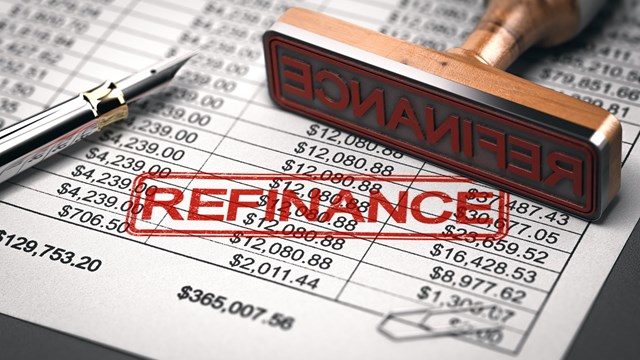All board members should be involved in the budgeting process of their building. However, board members come from a wide array of professional backgrounds, and often lack experience managing large budgets and do not know how to effectively cut costs. Andrew Hoffman, principal of Hoffman Management in Manhattan, and Ted Procas, chairman of the board of the Association of Riverdale Cooperatives and executive board member of the Council of New York Cooperatives and Condominiums (CNYC), offer many insights into ways that costs can be reduced–not just the costs that are traditionally considered variable, such as supplies and maintenance, but also costs that most people consider fixed, such as labor and taxes. In fact, Hoffman says, "There is no real difference between variable and fixed expenses."
Procas believes it’s important to "alert people that as board members they can have an impact, and to give them an appreciation for how important it is to look at all areas of the budget."
By carefully examining line-item expenses, boards can save thousands, even hundreds of thousands of dollars. It is therefore crucial for boards to monitor their daily expenses. Hoffman says that in addition to reviewing line items on a monthly basis, board members should be proactive in ensuring that they pay fair prices for supplies. "Take your bills to the local hardware store and price things out. You should be buying supplies at wholesale prices. If you’re paying retail prices, you’re paying too much."
It is also important for boards to involve their superintendents in day-to-day budgeting and to regularly go over building inventories with them to ensure that the correct quantity of supplies is ordered. "Lots of buildings have supplies that have been sitting on the shelf for three years. It’s more cost-effective to buy a smaller quantity, why let stuff sit on the shelf?" Hoffman asks.
There should also be a logbook for all maintenance workers to sign as they enter and leave the building. This enables the board to monitor the labor costs of building repairs. "All too often, buildings get bills where both the ‘time in’ and ‘time out’ boxes are empty. There’s nothing worse than getting a bill from the plumber for three hours and realizing that you have no idea how long he was actually there," Hoffman says.
By keeping a close eye on the costs of supplies and outside repairs, expenses can be significantly reduced. It is a serious mistake for board members to consider any expense incidental or insignificant.
Managing "Fixed" Labor Costs and Outside Contracts
While staff salaries are fixed, there are ways to lower the cost of employee salaries. Overtime pay, at time-and-a-half, can be a serious burden on a building’s budget. It is therefore crucial to keep overtime expenses to a minimum. Nevertheless, many boards consider overtime pay an unavoidable expense and spend a significant portion of their budgets on this cost, when it should only be an occasional expense.
"Buildings with a 24-hour doorman need to be staffed 168 hours a week, but four full-time men are only hired for 160 hours a week," Hoffman says. "A lot of buildings give eight overtime hours to their salaried workers, and that’s a waste of money. Get someone–a retired guy from the building or the neighborhood–to work the extra shift. Find someone who’s easily available, who can also cover sick time and vacation time for the regular doormen."
Union laws allow buildings to eliminate staff positions under certain conditions, such as a change in work specifications (if the shareholders are doing maintenance work themselves), or if there is a change in the type of occupancy. However, it is crucial that if the staff size is reduced, all union rules and regulations are followed carefully. If a building eliminates a staff position illegally, the union may spread that salary among the remaining employees, on the principle that the remaining workers have had to do the work of an extra person. Also keep in mind that a reduction of staff should not equal a reduction in services if such are provided in the properietary leases of rent-stabalized tenants.
When a building goes from rental to co-op or condo, staffing requirements usually change since shareholders and owners are responsible for many of their own repairs. Therefore, when a building undergoes this type of change, it is important for the board to examine the way it will handle the excess staff. Rather than cut the size of their staff, they may choose to provide extra services to shareholders, using a charge-back system. This system may be operated on either an hourly or fixed rate and gives residents the opportunity to have routine maintenance work done cheaply. Hoffman cites the example that residents can have light fixtures installed by staff members instead of an electrician. A charge-back system generates income to help cover labor costs, and ensures that labor costs are divided fairly among shareholders. Rather than making everyone in the building pay equal amounts of labor costs, the people who use staff services frequently pay more than those who rarely use them. When implementing this type of system, co-op boards should learn about all their staff members’ skills, to determine exactly what types of services they can and cannot offer to shareholders.
It is also important for boards to regularly re-bid their contracts. When buildings renew their contracts without re-bidding, they often accept small increases that seem reasonable, but which can add up over a number of years, until the building is paying far more than market value. "A lot of buildings have contracts with lives of their own," says Procas. "If you ignore your contracts and leave the prices up to other professionals, they can run away from you. You can be taken advantage of."
Tax Certiorari
Even taxes, which are often considered completely fixed, can often be reduced. Boards can file for tax certiorari, which is a way of reassessing and protesting their real estate taxes. During this process, boards should work closely with their certiorari attorneys to ensure that their taxes are filed correctly. An error in the number of units in a building can significantly raise real estate taxes, for example.
Hoffman also says boards should negotiate the fees with their attorneys when filing for certiorari. Many buildings pay up to 35 percent of the savings gained through certiorari in fees. Hoffman says the fees should more typically be in the range of 13 to 20 percent, with larger buildings paying higher fees. Certiorari fees are based on the projected savings that will be achieved through the certiorari procedure, and by discussing exactly how and when the savings will actually be achieved, boards can often negotiate lower rates. "Just ask," advises Hoffman.
Boards should also educate shareholders about tax rebates that they may be eligible for but not aware of, such as veterans’ benefits. Boards can provide an important service to shareholders by simply putting articles in the monthly newsletter about ways to reduce their real estate taxes.
When considering expenses, the most important things boards can do is to be aware of what’s going on in their buildings, and to monitor every expense. When boards develop a clear understanding of where their money is going, they become aware of ways to reduce expenses and protect themselves from dishonesty and carelessness. According to Procas, when buildings do not monitor their expenses accurately they are taking a big risk. "Most people are honest, but it’s like leaving a $100 bill on the table when the cleaning lady comes in. If the money’s stolen it’s not really your fault, but there’s no reason to make yourself vulnerable."
Ms. Baker is a freelance writer living in Brooklyn.







Comments
Leave a Comment